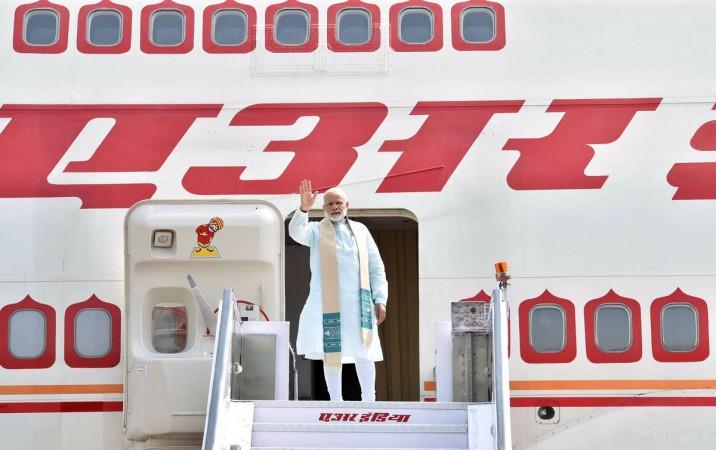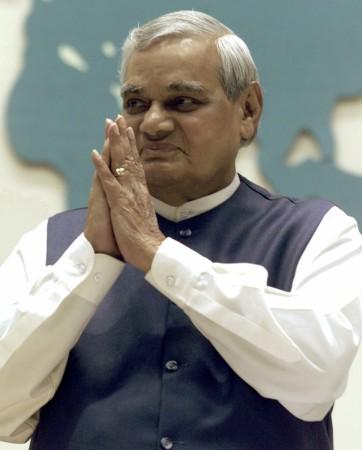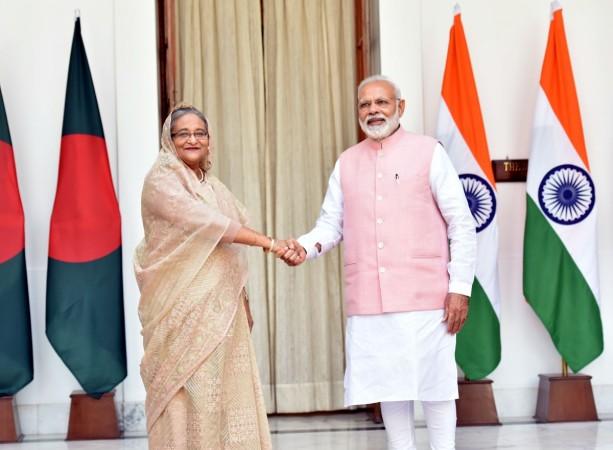
It's an irony that the nationalistic BJP governments of India have reached out to its neighbours in South Asia for giving peace a chance. It is another story that such initiative has not paid off always, but the efforts by various NDA governments at the Centre have been consistent.
Prime Minister Narendra Modi on Thursday, May 12, announced in Colombo that Air India will begin direct operations between Varanasi, his own constituency, and the Sri Lankan capital from August this year. Modi announced the key diplomatic initiative as a part of his effort to help India counter the growing Chinese influence in the island nation.
Also read: PM Narendra Modi in Sri Lanka: Can New Delhi script the golden chapter it spoke about in 2015?
One might remember that he had done the same during his visit to Japan in September 2014 by signing an agreement of partnership between Varanasi and Kyoto, the two historically significant cities. This time, the effort was on a similar line to cement the link between two renowned centres of Buddhism and Hinduism to extract benefits in strategic terms.
Modi announced the flight diplomacy months after Nepal-China venture started flights to Colombo
Modi's announcement also came months after Himalaya Airlines, a joint venture between Nepal and China, began direct flights to Colombo from October 1 last year. Though the flight connected Nepal and Sri Lanka, the China factor was always enough to make India apprehensive.
Now coming back to the BJP's tradition of diplomatic initiatives vis-a-vis India's neighbours, the Varanasi-Colombo is the latest to be added to its government's transport diplomacy with the countries next door.

Bus diploamcy with Pakistan by Atal Behari Vajpayee
The BJP's first big diplomatic initiative was the Lahore bus diplomacy. The then prime minister Atal Behari Vajpayee had taken the bus to reach Pakistan to attend a summit in February 1999 and even though the initiative was backstabbed by the plotters in Pakistan [read Kargil War], people on both sides of the border still remember the initiative as a symbol of the desired friendship between the two neighbours. The service was not halted even during the Kargil war though was stopped in the wake of the terrorist attack on the Indian parliament in December 2001.
Train, bus and waterways diplomacy with Bangladesh
The NDA government led by Modi was instrumental behind flagging off the Maitreyee Express between Kolkata and Khulna, nine years after the service had chugged off between Kolkata and Dhaka. PM Modi and his Bangladeshi counterpart Sheikh Hasina, who was on a tour to India then, had inaugurated the trial run of the train of friendship through a video link from New Delhi.
Also two years ago, in June 2015, PM Modi had flagged off two bus services linking Bangladesh with northeastern India, during his visit to the neighbouring country. Modi was accompanied by Hasina and West Bengal Chief Minister Mamata Banerjee on that occasion. The services include: Kolkata-Dhaka-Agartala and Dhaka-Shillong-Guwahati.

And this is not all. In June 2016, the waterways transit between India and Bangladesh was inaugurated in Dhaka and the service marked a new chapter in India-Bangladesh relations as a vessel carrying Indian goods consigned for the north-eastern state of Tripura used the neighbouring country's inland waterways to reach its destination. The vessel was received at Bangladesh's Ashuganj port by that countries' authorities.
The inauguration was part of the Indo-Bangladesh Protocol on Inland Water Transit and Trade signed by Modi and Hasina in 2015. The transit would reduce the expenses of carrying goods to the north-east from the rest of the country as the distance would have been reduced by a big margin.
India's aim in beginning these services was aimed at bringing Dhaka closer to New Delhi to neutralise Beijing's influence in South Asia.
Of these bus, train and flight diplomacies initiated by the BJP-led governments at various points of time, the efforts vis-a-vis Pakistan have not succeeded for perhaps the problems with that country are too hard to be resolved through softer means but with regard to the other neighbours, such diplomatic overtures have served a purpose.

















